 It's a tradition with the wife's side of the family to watch the movie 1776 every July 4th. The first time I heard about this tradition I thought gloomily, "Yippee, a musical made in the 70's about a historical event..." But I soon discovered that 1776 is in many ways a cinematic gem. It's unique and well-constructed. It does the founding fathers proud.
It's a tradition with the wife's side of the family to watch the movie 1776 every July 4th. The first time I heard about this tradition I thought gloomily, "Yippee, a musical made in the 70's about a historical event..." But I soon discovered that 1776 is in many ways a cinematic gem. It's unique and well-constructed. It does the founding fathers proud.
1776 is a musical/drama about the events and characters that bring about the Declaration of Independence. The movie is based on the Broadway play bearing the same name (it stars many of the same players as well).
According to 1776, the birth of the United States resembles the birth of a church. In both cases, certain men are equipped to work together and clash against each other in order to culminate a singular cause which will affect a greater good. Ephesians 4:22 gives a breakdown of the sorts of people, or spiritual equipment, that God uses to establish His church: apostles, prophets, pastors, teachers and evangelists. There are also elders, whom God appoints to be exactly that--older and more experienced. 1776 depicts a core group of congressmen who possess striking similarities to these spiritual gifts.
John Adams cannot resist his apostolic drive. His visionary zeal is nearly intolerable to everyone, including his closest friends. This zeal is evident in his song, "Is Anybody There?":
Does anybody see what I see?
They want to me to quit; they say
John, give up the fight
Still to England I say
Good night, forever, good night!
For I have crossed the Rubicon
Let the bridge be burned behind me
Come what may, come what may
Commitment!
The croakers all say we'll rue the day
There'll be hell to pay in fiery purgatory
Through all the gloom, through all the gloom
I see the rays of ravishing light and glory!
Is anybody there? Does anybody care?
Does anybody see what I see?
I see fireworks! I see the pagaent and
Pomp and parade
I hear the bells ringing out
I hear the cannons roar
I see Americans - all Americans
Free forever more
How quiet, how quiet the chamber is
How silent, how silent the chamber is
Is anybody there? Does anybody care?
Does anybody see what I see?*
This is exactly the way God's prophetic leaders think. He expects His apostles and prophets to stick to whatever vision He gives them, saying if needs be, "Come what may, come what may!"
Adams cares little for anyone else's opinion; it is a revolving joke that he is "obnoxious and disliked." However, despite his relentlessness, he earns his peers' respect as well as their loyalty, not because of his eloquence but for his purity of heart. It is common knowledge amongst this First Congress that Adams would place himself first in line to give up everything, even his life, for the cause of liberty. He might be called a "founding father" as well as an "apostle of American freedom."
Thomas Jefferson seems to possess the mindset of a teacher, as he is more exacting than his peers. He is a man of few words so, when he does speak, he commands people's attention. For this very reason the Declaration Committee chooses him to do the writing. Jefferson's mind is perhaps the sharpest of all his peers; or at least he possesses the most engaging powers of expression.
Benjamin Franklin and Caesar Rodney stand out as the "elders" of the American Independence. They were, first off, two of the most experienced as well as the physically oldest men in Congress. In any case, their main qualification for the title of "elder" is their long track record of commitment to the well-being of America. Caesar Rodney attends the meeting to vote on the issue of American independence though he is literally on his deathbed. Franklin in particular is renowned for his useful wisdom. Almost every member of Congress defers to him and he never fails to inform and guide as needs be. Franklin might also be called "the pastor of American Independence."
We might also call Richard Henry Lee "the evangelist of American freedom" for his particular ability to "convert unbelievers." It is his charisma that sparks the debate on American independence in earnest. If not for his fiery influence, the southern colonies would not have even considered debating the issue.
*lyrics by Sherman Edwards, 1776 Music Inc. www.1776themusical.us



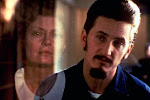


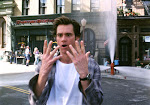
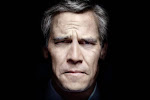

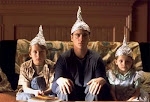

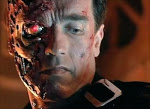
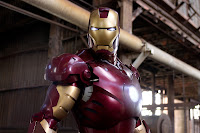






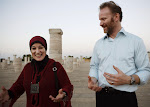



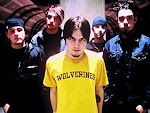

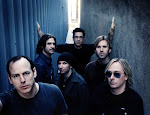
No comments:
Post a Comment